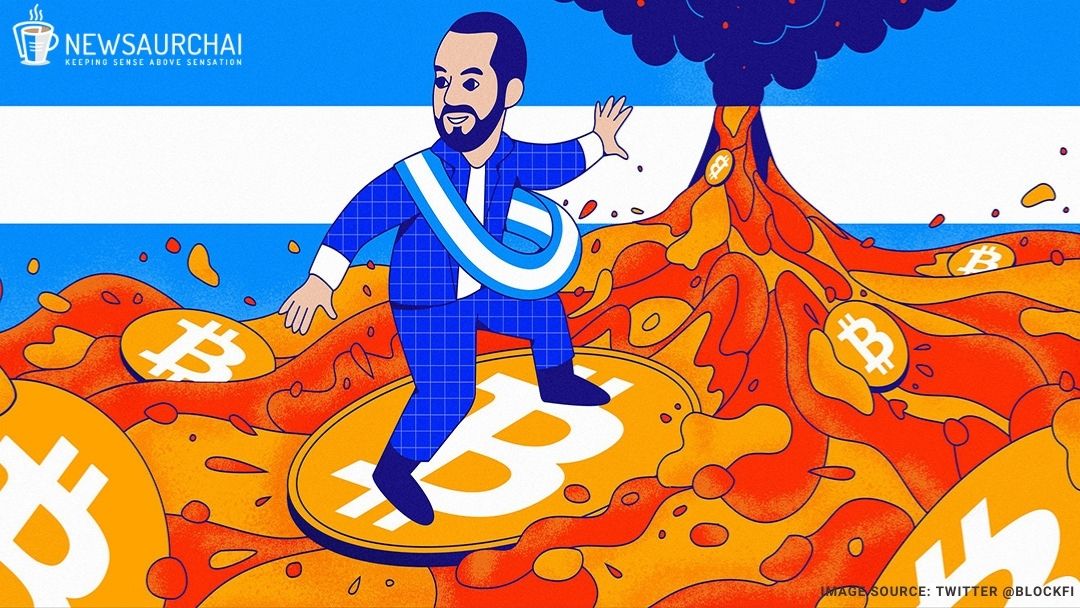
El Salvador passed the law adopting Bitcoin as legal tender last Wednesday. With this, El Salvador became the first country to accept Bitcoin as a form of currency. The legislation received a clean chit in Congress with an overwhelming majority.
President of El Salvador Nayib Bukele announced the historic decision through Twitter. He tweeted, “The Bitcoin Law has been approved by a supermajority in the Salvadoran Congress. 62 out of 84 votes!”
The #BitcoinLaw has been approved by a supermajority in the Salvadoran Congress.
62 out of 84 votes!
History! #Btc🇸🇻
— Nayib Bukele (@nayibbukele) June 9, 2021
What is the Bitcoin Law?
Bitcoin is the most popular cryptocurrencies globally, and this Central American country made Bitcoin their official currency. However, the government did not have any official money to date. Therefore, it used the US dollar as its currency to date.
Salient Features of the Law
• The market will establish the exchange rate between Bitcoin and the US dollar.
• Bitcoin can be used to display prices and pay taxes. The exchanges made in Bitcoin would not be subjected to the capital gains tax.
• Before the law came into effect, all monetary obligations to be paid in US dollar can be produced using Bitcoin.
The President posted a copy of the law on Twitter. The announcement of the law brought cheer to Bitcoin enthusiasts. According to CoinMarketCap, the price of Bitcoin shot up from $33,555 to $34,398 after the announcement. It also led to a spike in interest in real estate in the country.
The law will come into effect in the next 90 days.
Reasons for Implementing the Law
The Salvadorian government passed the Bitcoin law amidst concern about its impact on its International Monetary Fund program.
Before the vote on the legislation, President Bukele tweeted, “It will bring financial inclusion, investment, tourism, and innovation for our country.”
The President instructed state-owned geothermal electric firm LaGeo to develop a plan to offer bitcoin mining facilities using renewable energy from the country’s volcanoes. He said the idea was to build a bitcoin mining hub around the country’s geothermal potential. El Salvador also opened the offer of citizenship to people who have invested in at least three bitcoins.
The government addressed the issue of risk associated with bitcoin. It guaranteed the convertibility of the cryptocurrency to US dollar by creating a $150 million trust at the development bank, BANDESAL.
The citizens in the capital city San Salvador received the announcement with mixed feelings. Some people were excited that Bitcoin would bring economic prosperity. A few remained sceptical. One person commented, “How am I going to agree with this? I haven’t seen it even in photos. I know nothing about it, you need to understand your currency.”
The idea behind the President’s push to legalise Bitcoin emerged from the rural fishing village El Zonte. Project Bitcoin Beach brought the cryptocurrency to the coastal town. As a result, some 500 fishing and farming families use bitcoin to buy and pay for groceries and utilities.
Earlier, it was up to the businesses to accept bitcoin as legal tender. However, companies are legally obligated to accept bitcoin as a currency with the Bitcoin Law in place.
Growth of Cryptocurrencies
Cryptocurrencies appeared for the first time in 1983. Then, Cryptographer David Chum developed a cryptographic system called eCash. Twelve years later, he created another cryptographic payment system DigiCash. However, the term ‘cryptocurrency’ was first coined in 1998.
Bitcoin – the latest version of cryptocurrency was developed in the aftermath of the 2008 financial crisis. As a result, populations in Europe and the USA lost trust in banks, financial institutions and governments.
The situation provided the anonymous Satoshi Nakamoto with the opportunity to create the Bitcoin. People remained sceptical about cryptocurrency for a long time, but the concept has changed over time. Today, there is increased use and investment in cryptocurrencies.
Two multinational companies Kodak and Facebook, developed their cryptocurrencies. First, Kodak created the KodakCoin, followed by Facebook, launching Libra.
Countries over time warmed up to the notion of cryptocurrencies becoming legal. For example, in Latin America, countries like Cuba, Mexico, and Venezuela show an increased interest in cryptocurrencies. They view them as a viable mean to combat the financial instability in the region.
Most countries in the European Union have legalised the use of cryptocurrencies. Despite the legal status it enjoys, cryptocurrencies are not yet viewed as currency. In the EU, VAT/GST is not applied when converting currency into bitcoin. Tax is applied only on transactions using bitcoins for products and services.
The United States of America is the leader in promoting the use of cryptocurrency. The US Treasury in 2013 declared bitcoin as a convertible decentralised cryptocurrency. In 2015, the CFTC recognised bitcoin as a commodity. However, it gets taxed as property by the IRS.
There is an increased interest in cryptocurrencies, even in Southeast Asian countries. They view it as an avenue to increase the stability of their economy.
In India, the Modi government declared in the Rajya Sabha that they do not plan to introduce any indigenous cryptocurrency. However, the Reserve Bank of India proposed to launch its cryptocurrency.
Despite growing confidence in cryptocurrencies, governments continue to remain cautious. The reason behind the scepticism in the unregulated and decentralised nature of cryptocurrencies is that governments view it as an avenue for financial criminals to launder ill-gotten wealth. Thus, the fright concerning digital currency will sustain longer than expected.





